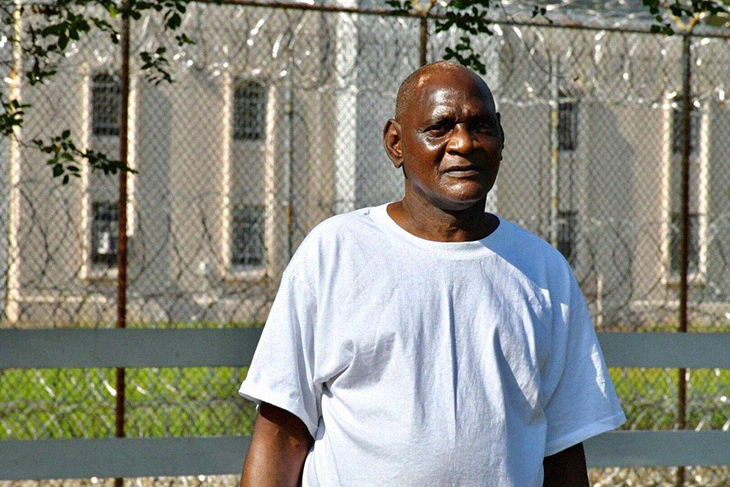
Crime does not pay, but at times, justice goes blind. Sometimes, the punishment for a crime is not justified, or even fair. A convicted man serving a life sentence in Louisiana finally walked free, after serving 23 years in prison. His crime? Stealing hedge clippers from someone’s garage in 1997.
63-year old Fair Wayne Bryant, served 23 years for an attempted burglary conviction, and for his “long-list” of arrests and convictions. The state’s severe punishment was due to habitual offenses, which included 22 arrests and 11 convictions. Still, his life sentence became the subject of criticism from civil liberties advocates who called the sentence “cruel and unusual”, and had tones of racism and slavery in the Southern state. This surprisingly included the Chief Justice of the Louisiana Supreme Court.
Bryant’s parole panel mentioned his habitual offenses, which included four felonies, of which only one was for a violent crime – an attempted robbery of a taxi driver in 1979. A report in 1997 outlined that Bryant was driving when his car stalled, and he entered someone’s garage looking for a tank of gas. When he was discovered, he attempted to flee on foot, but was eventually apprehended by police. It was then when he was accused of stealing a pair of hedge clippers that were found in his car, which Bryant had denied. But evidence suggested that he had intended to commit theft. Because of his notorious criminal record, and the state’s harsh repeat offender laws, he was meted out a life sentence, which he appealed for the next 23 years.

A couple of months ago, Bryant’s case appeared before the Louisiana Supreme Court, which voted 5-1 to deny the appeal. The sole vote from the six came from Bernette J. Johnson, the state’s first black Chief Justice, who called for a review of the case. Needless to say, the five votes to reject the appeal came from white male board members.
The Chief Justice argued that the sentence was completely disproportionate to the crime. And, she noted that Bryant’s sentence had already cost taxpayers $518,667. “Harsh habitual offender laws…permit a life sentence for a black man convicted of property crimes,” the Chief Justice wrote. “This man’s life sentence for a failed attempt to steal a set of hedge clippers is grossly out of proportion to the crime and serves no legitimate penal purpose.” She further added, “If he lives another 20 years, Louisiana taxpayers will have paid almost one million dollars to punish Mr. Bryant for his failed effort to steal a set of hedge clippers.”
Aside from that, Chief Justice Johnson described Bryant’s past criminal offenses as “petty theft” rooted in “ravages of poverty or addiction.” She also blasted Louisiana’s harsh repeat offender laws as similar to the racist “Black Codes” and “Pig Laws” that unjustly penalize poor black people for crimes like stealing farm animals or being unemployed. Common misdemeanors and trivial offenses are unjustly being treated as felonies. “Pig laws” in Mississippi meant any theft of property over $10 was enhanced to grand larceny. Because of this, prison populations quadrupled.

Eventually, the Committee on Parole voted unanimously (3-0) to release Bryant. However, he will be made to attend Alcoholics Anonymous meetings due to his history of alcohol and drug abuse. He must also adhere to a curfew, and perform community service. Bryant was represented by Louisiana State University Professor Robert Lancaster during the hearing. He is also the director of the LSU Parole and Re-entry Clinic, and was assisted by Kelsey Jenkins, a 3rd-year LSU student of law, who helped draft a memo to support the early release of Bryant.
Jenkins wrote, “Mr. Bryant’s sentence is an example of the flaws in Louisiana’s criminal legal system, but the Parole Committee’s decision to grant him early release shows the importance of periodic evaluation of an individual’s rehabilitation, which Mr. Bryant will continue with the support of the Louisiana Parole Project, Inc.”
The American Civil Liberties Union (ACLU) of Louisiana applauded the decision and said it was long overdue. ACLU executive director Alanah Odoms emailed a statement, “Now it is imperative that the Legislature repeal the habitual offender law that allows for these unfair sentences, and for district attorneys across the state to immediately stop seeking extreme penalties for minor offenses.”
Some laws truly have to be re-evaluated to make sure the punishment fits the crime. It is sad that some laws still have racial undertones, but that is reality. The American justice system has flaws, but most of the time it works. While it is true that crime does not pay, the system should not seek a “pound of flesh”, particularly for trivial offenses.
What are your thoughts? Please comment below and share this news!
True Activist / Report a typo


